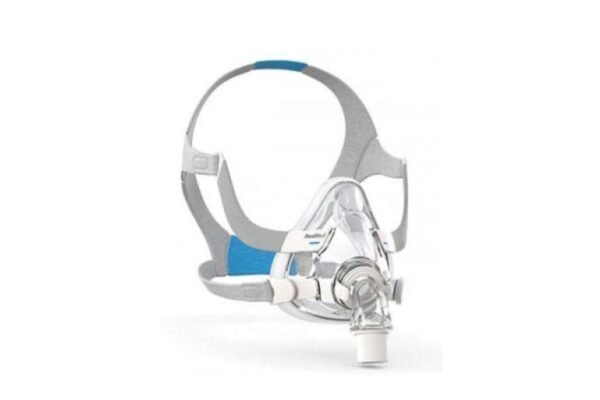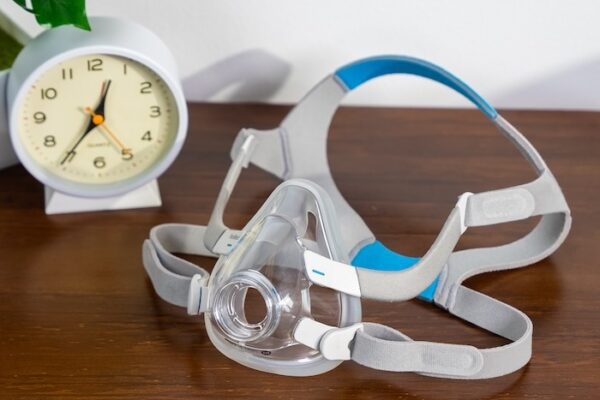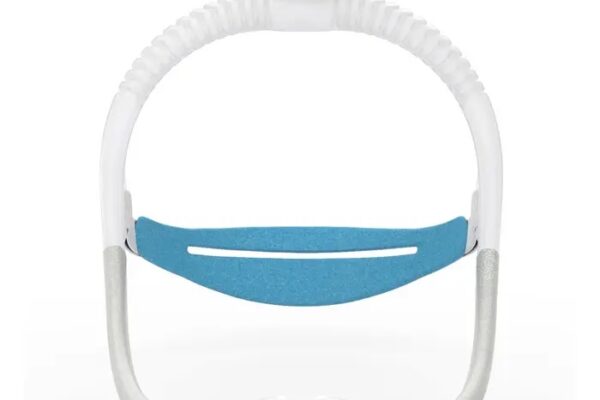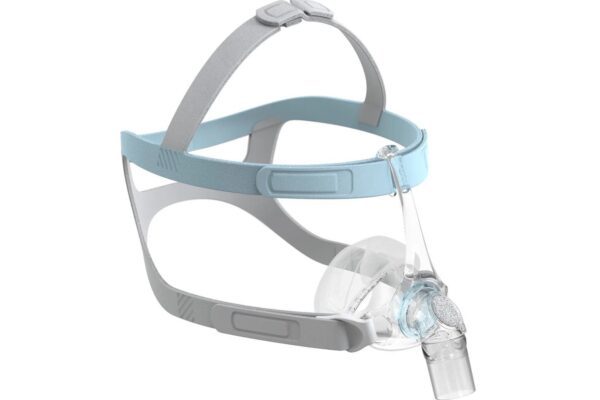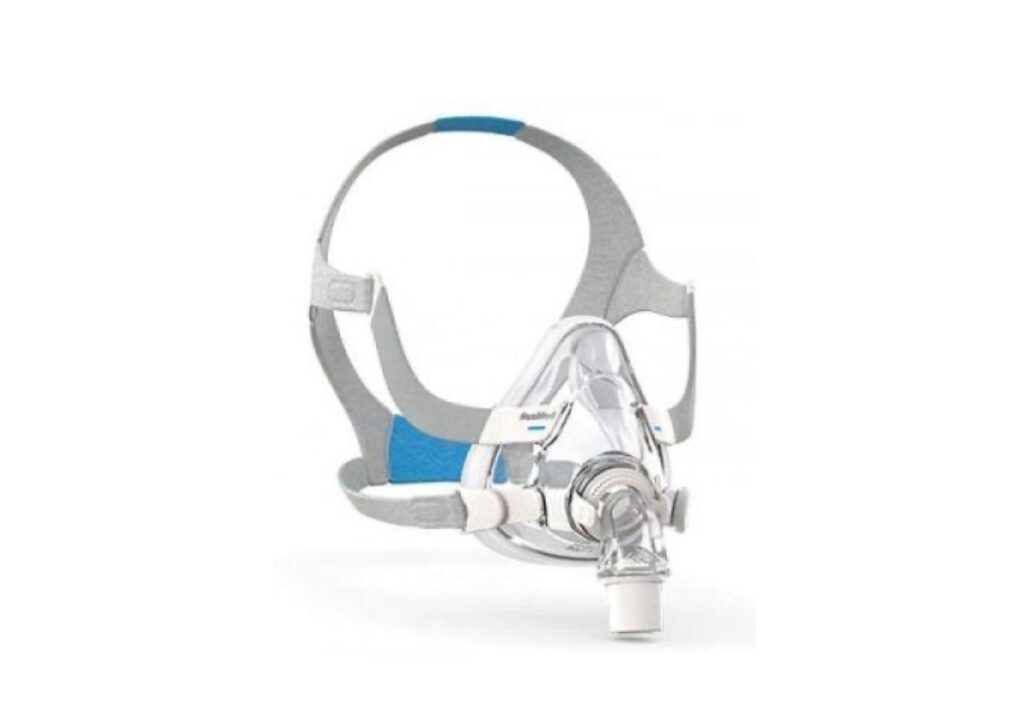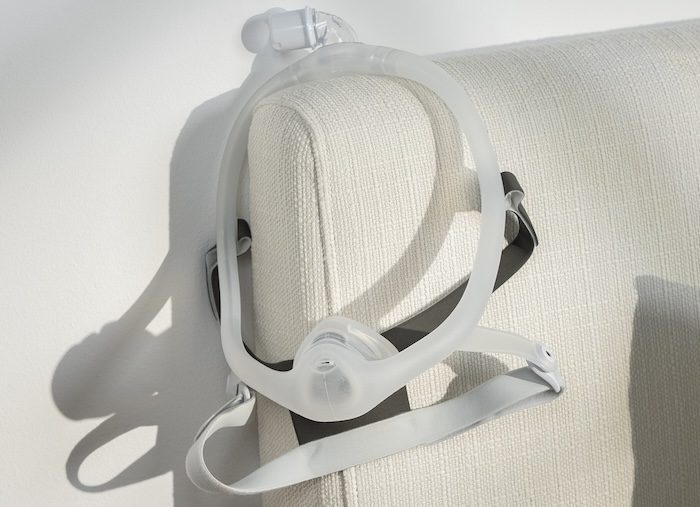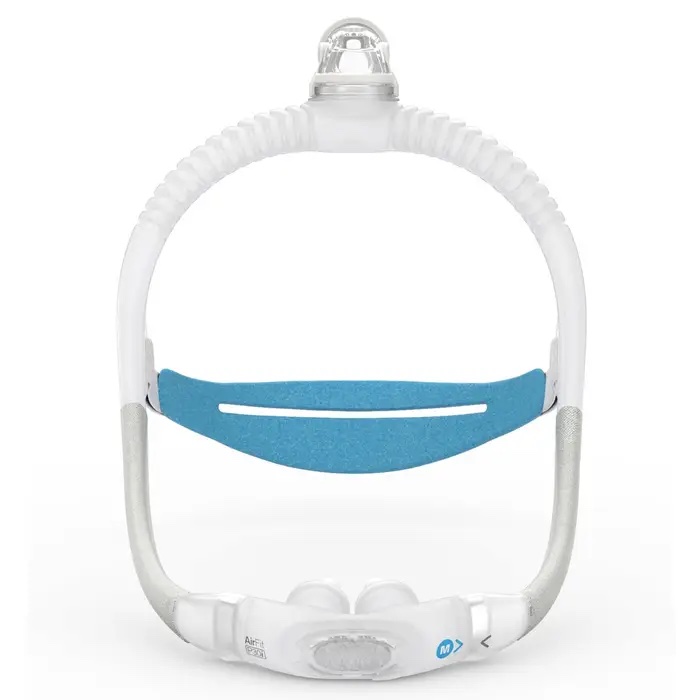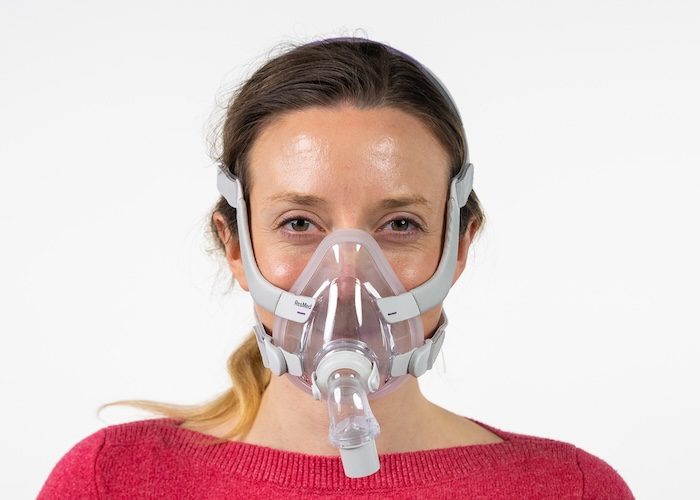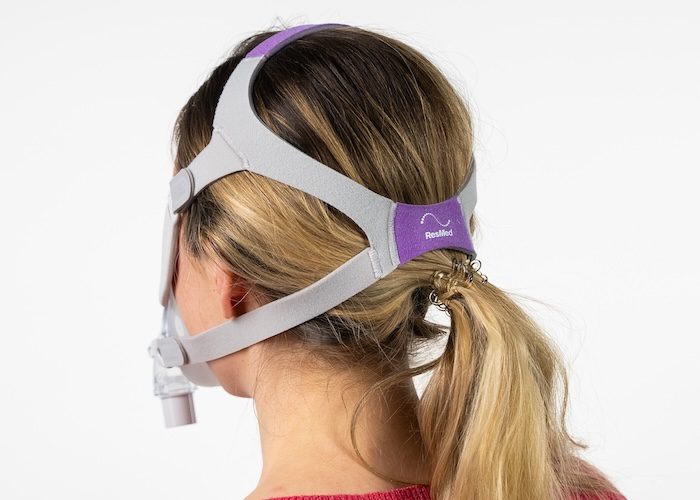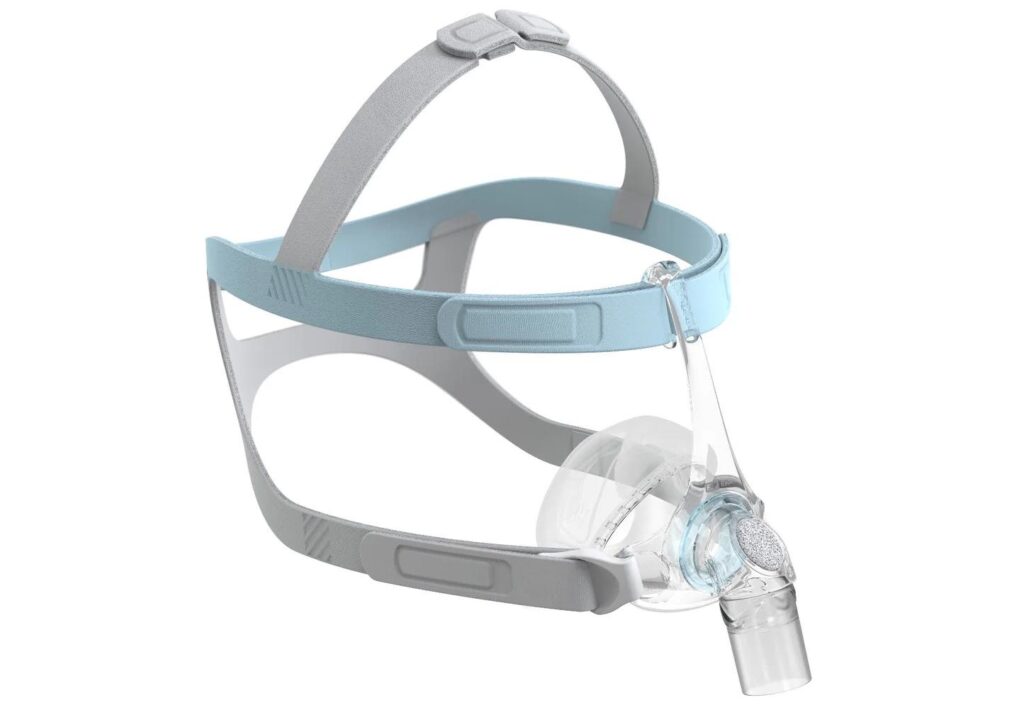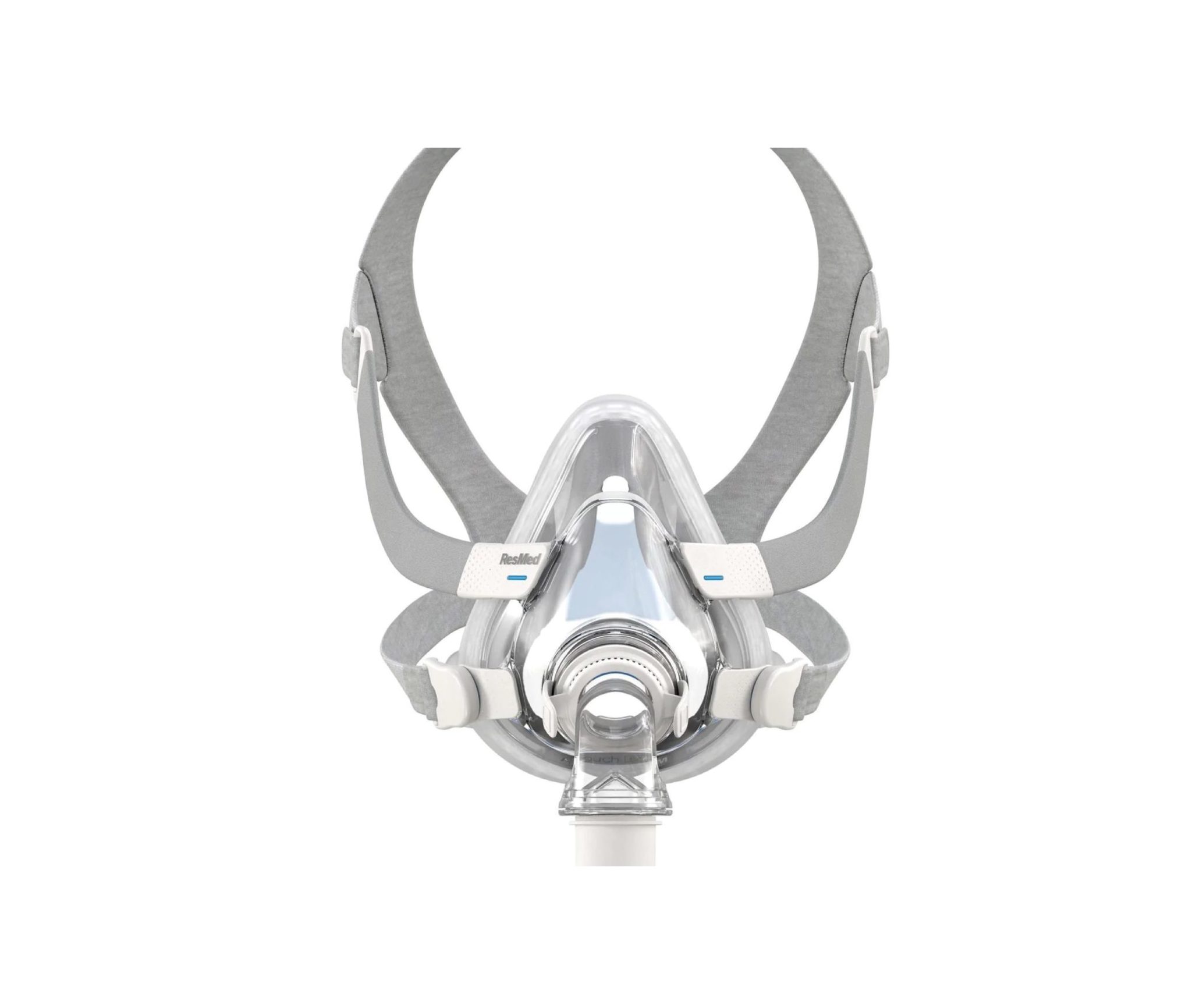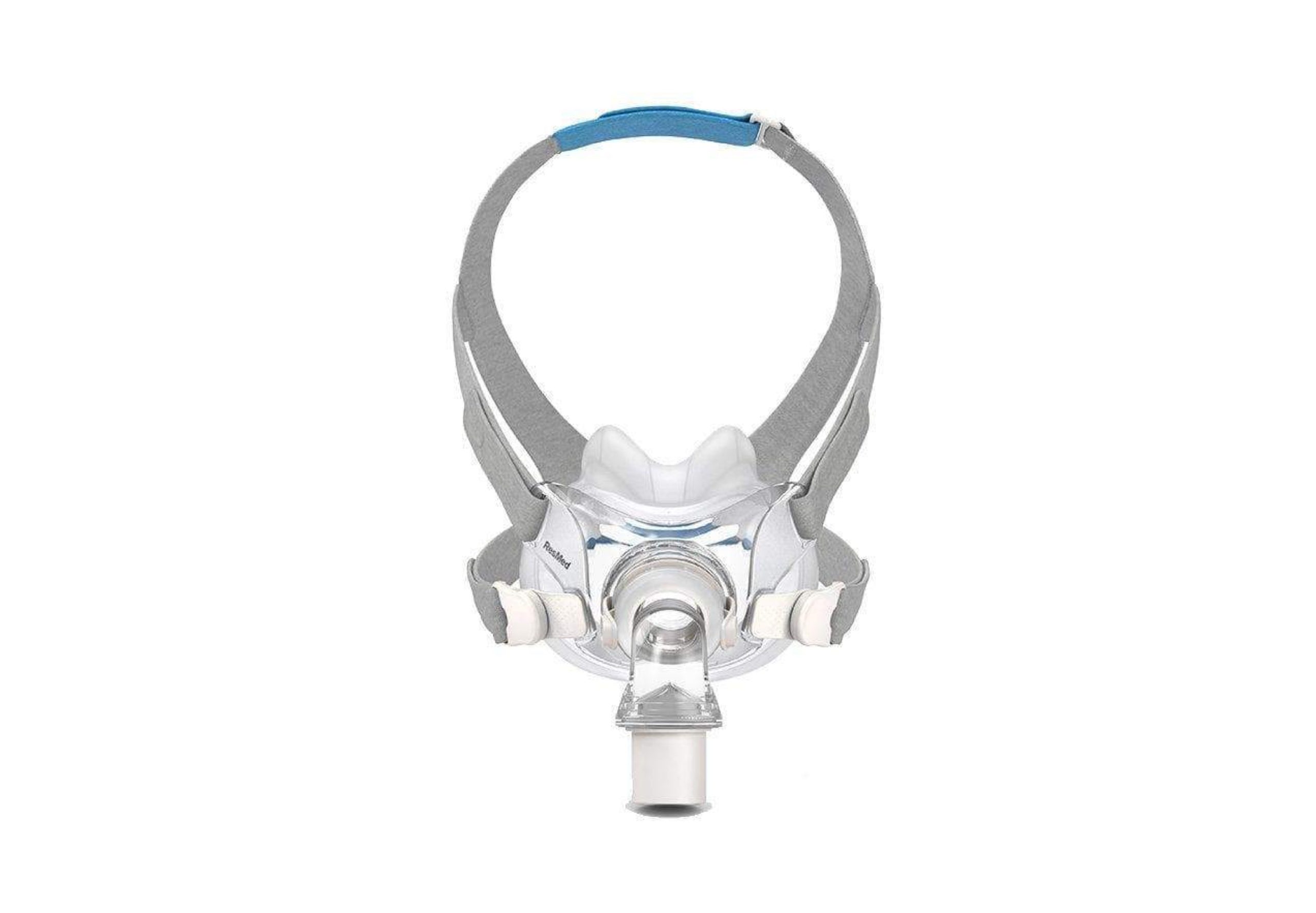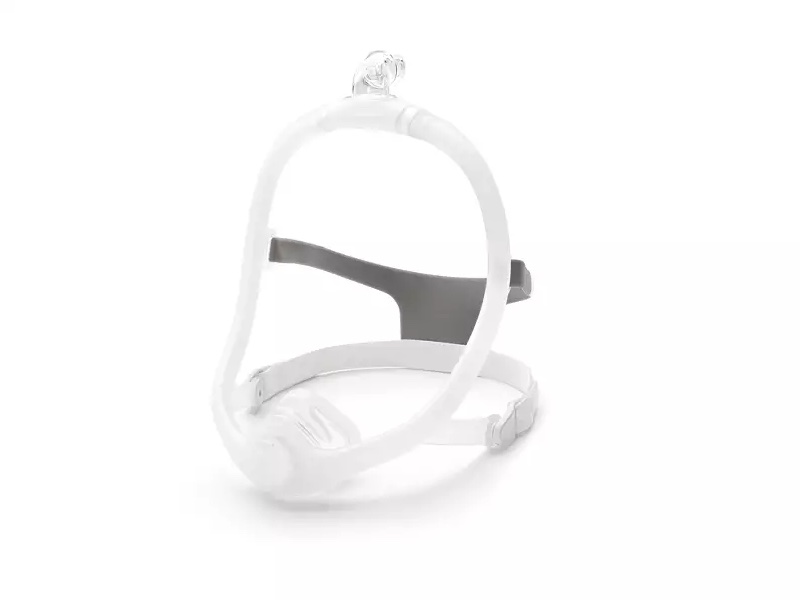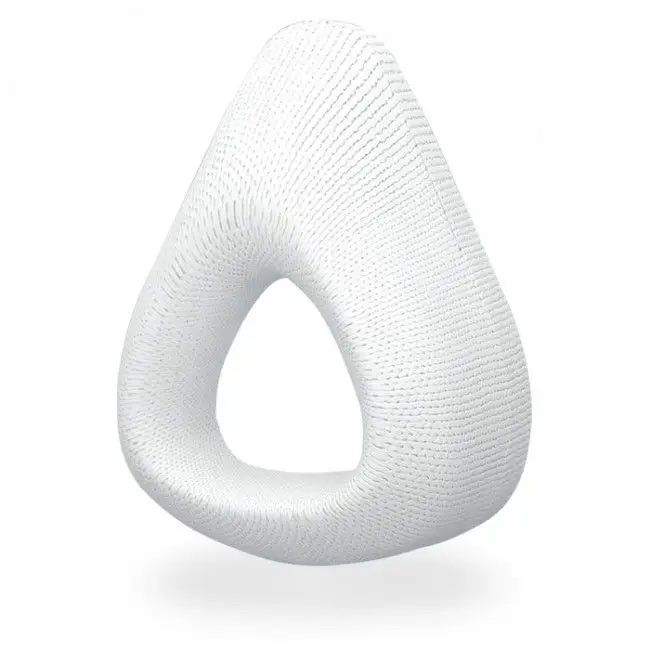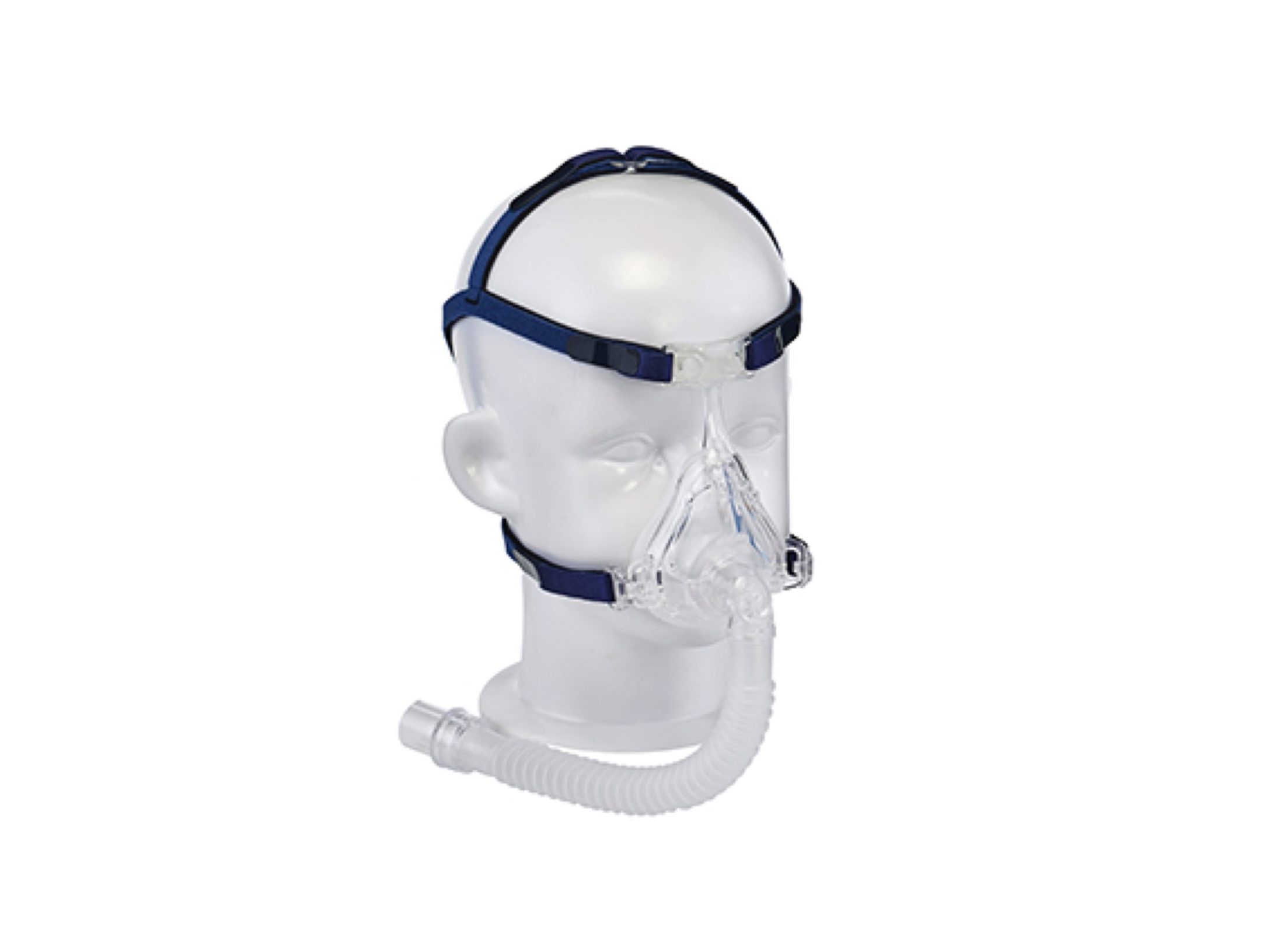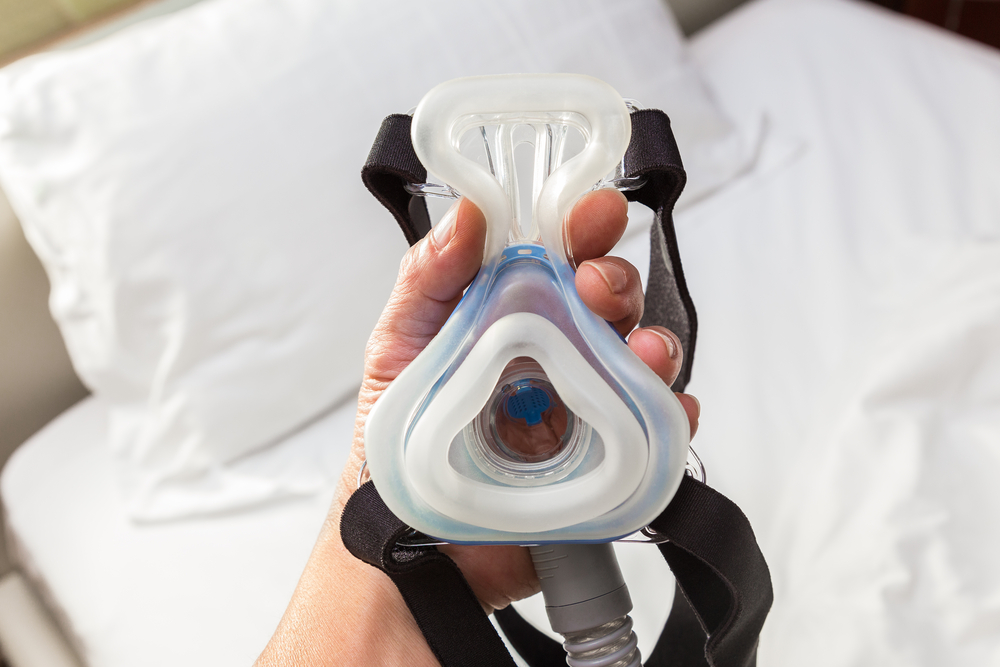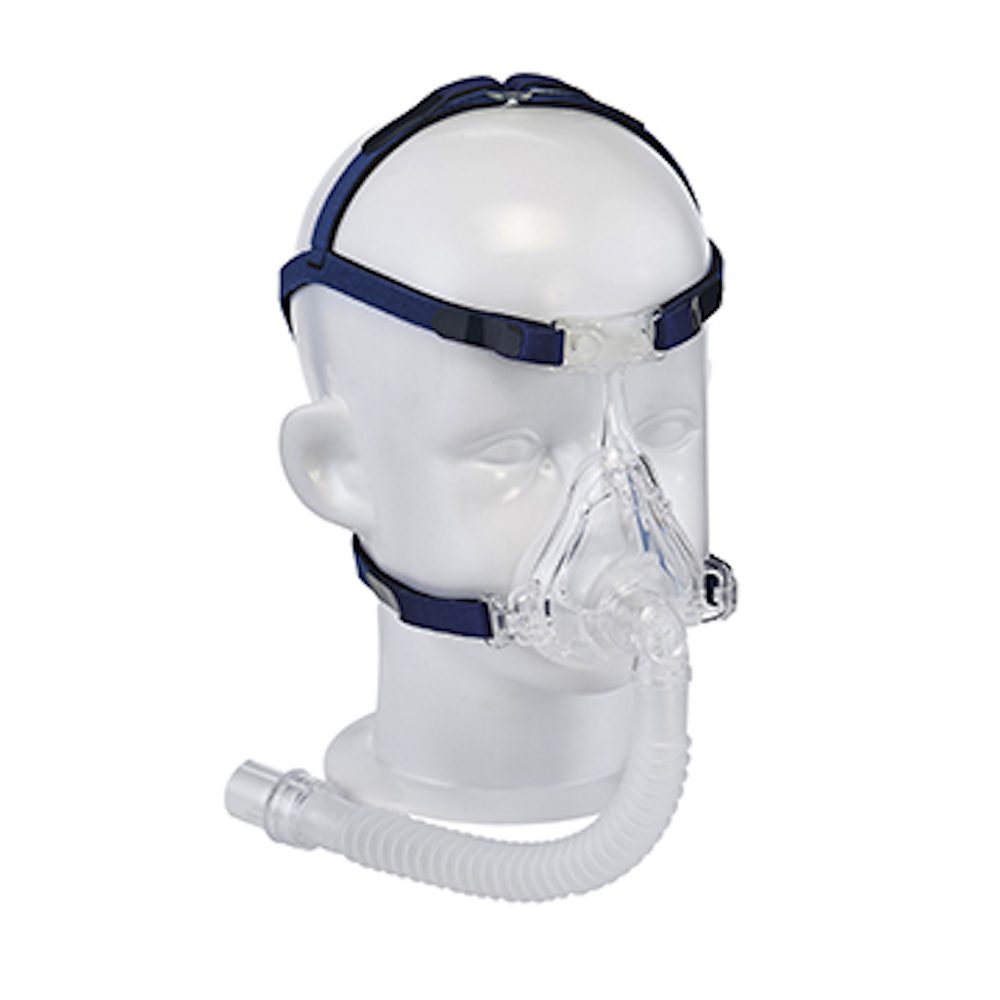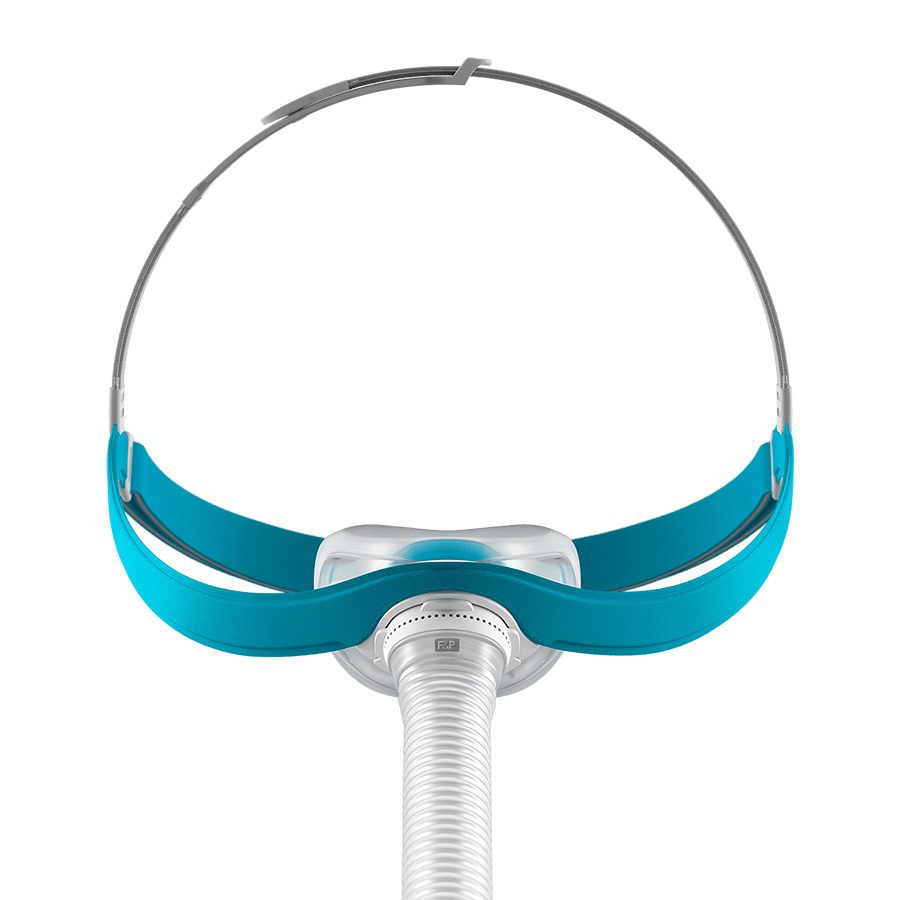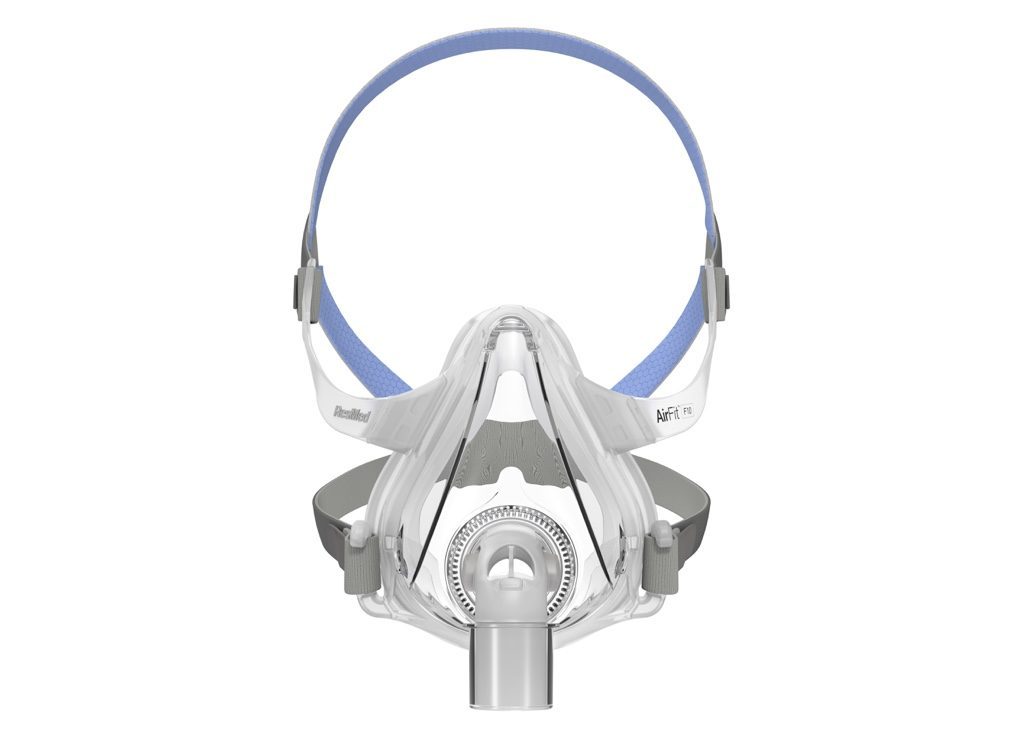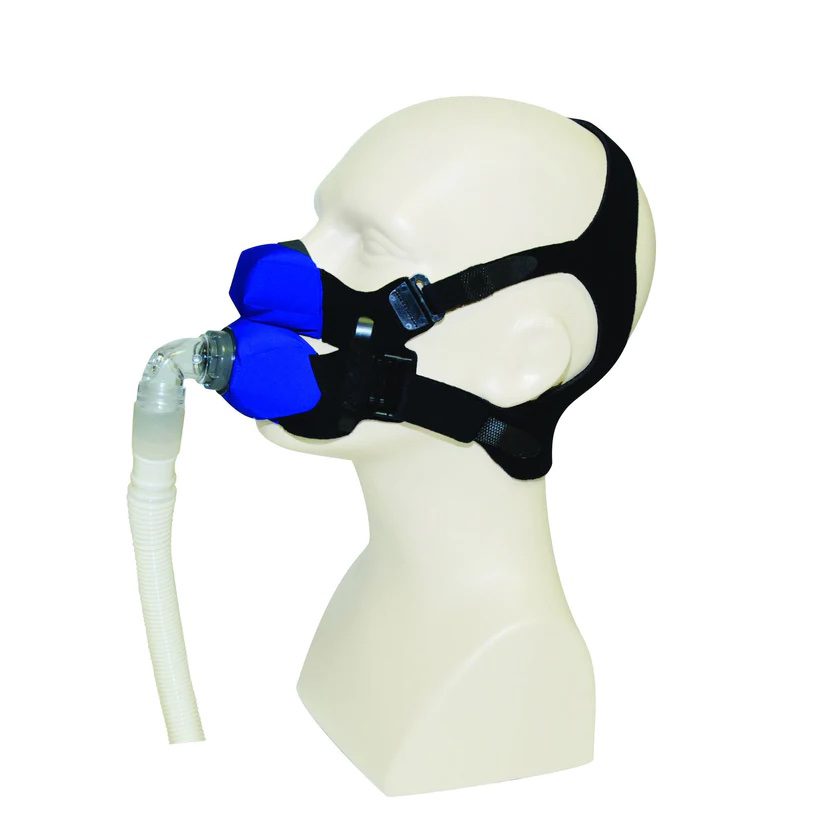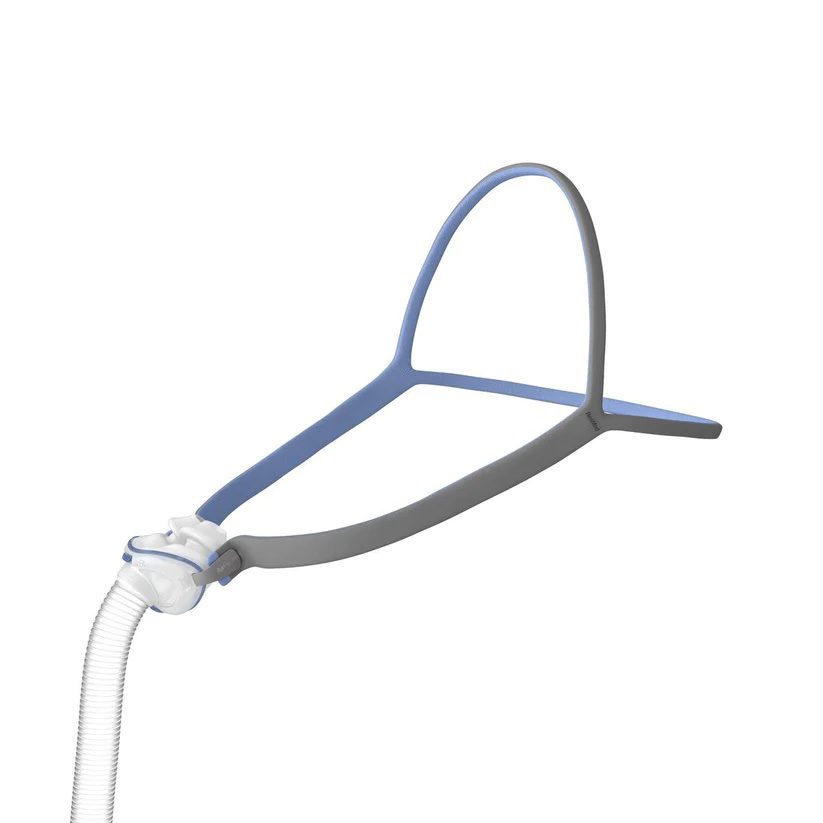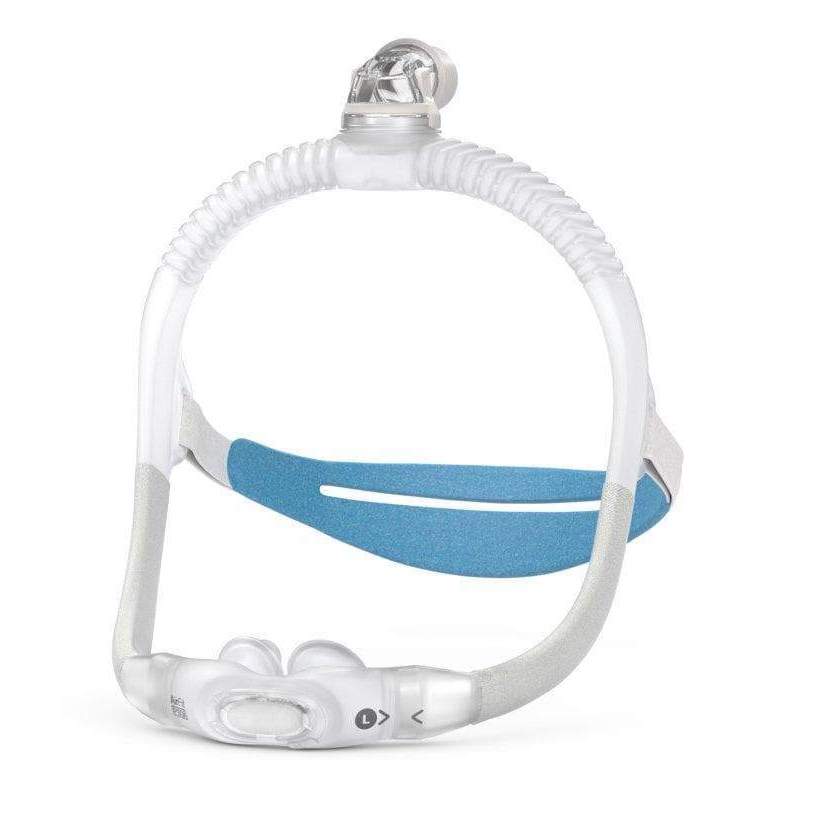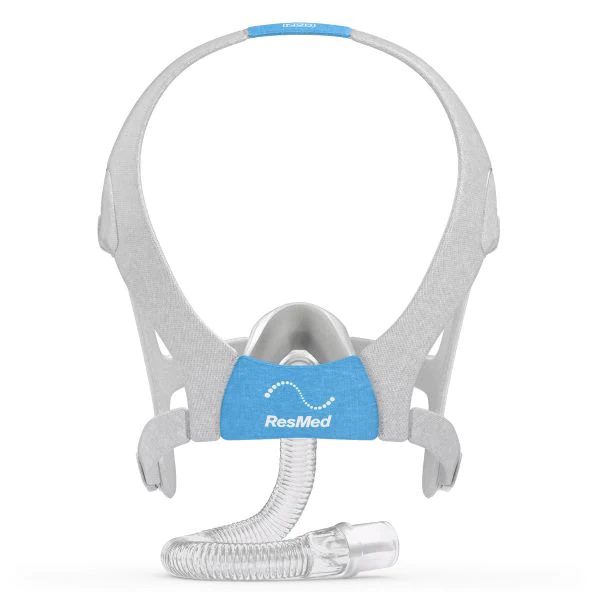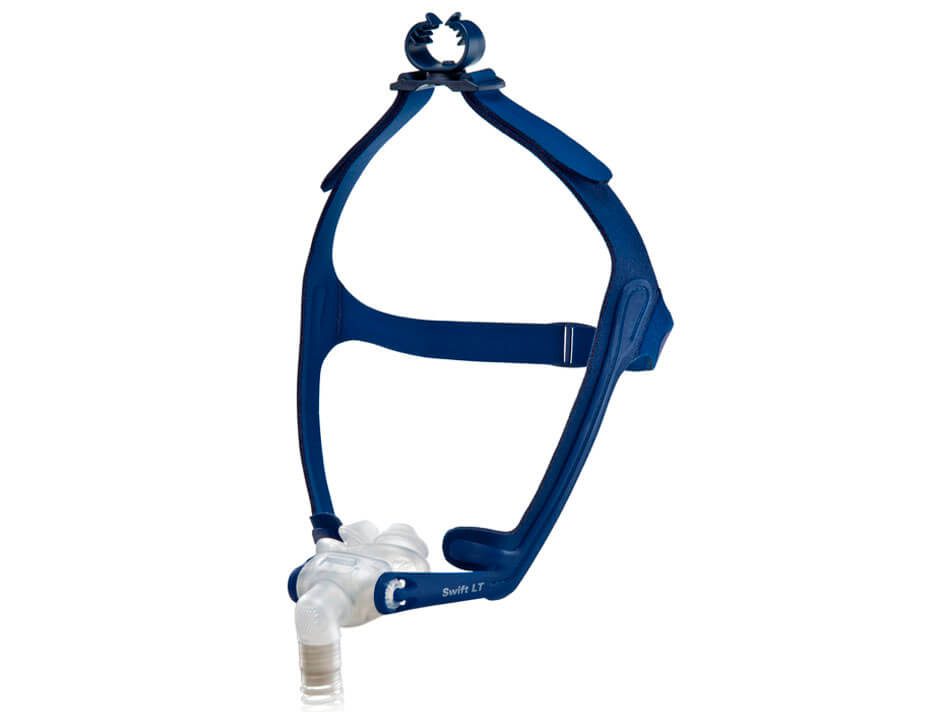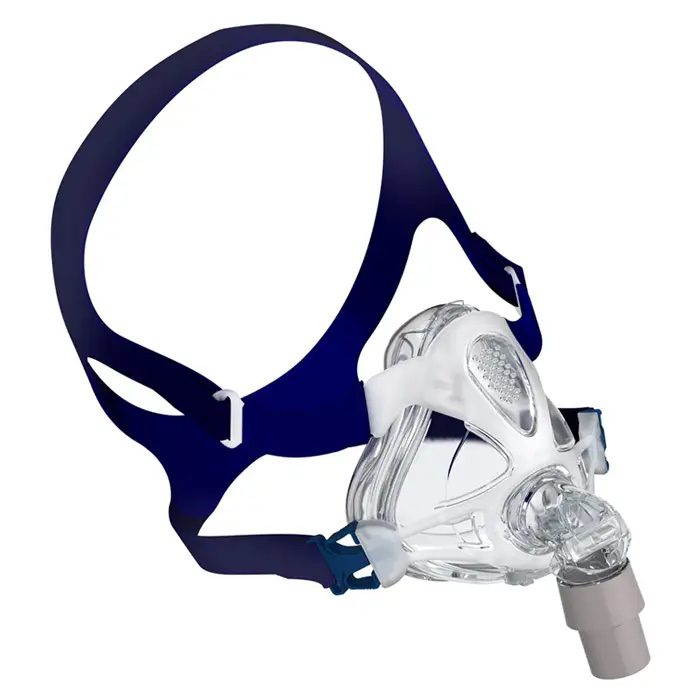Finding the right CPAP mask can make all the difference in how comfortable and effective your sleep apnea treatment feels. Because every sleeper’s face shape, breathing pattern, and comfort preferences are different, the best mask is the one that fits your needs and encourages consistent use.
Below, we’ll review the best CPAP masks, providing detailed information on how each mask fits, what kind of features it includes, and who is likely to benefit. Additionally, we’ll go how to properly clean a mask and what types of insurance cover CPAP masks and accessories.
Best Overall
ResMed AirTouch F20 Full Face CPAP Mask with Headgear
Ideal For
- CPAP users who need high pressure levels
- People who have found other full-face masks too rigid or difficult to remove
- Those who want to subscribe and save
Who Should Keep Looking
- Stomach sleepers
- Those who don't require high pressure settings
- Shoppers with limited budgets
-
Price
$154
-
Size
Small for Her, Small, Medium, Large
-
Type
Full Face
Full-face masks can be ideal for people who require high pressure levels for their CPAP therapy. While this type of mask can be heavy or bulky, the ResMed AirTouch F20 has smooth elastic straps that make it fairly lightweight and flexible. Magnetic clips also make the mask easy to put on and take off, and the quick-release elbow joint allows you to quickly remove the mask if you need to get up during the night.
The mask features cushions made of soft memory foam. Your purchase includes cushions in small, medium, and large sizes — we recommend trying each size to determine which fits best. Ideally, the foam should contour gently to your face and create a secure seal without feeling too tight or invasive. ResMed recommends replacing the cushions after 30 days of use, or if they become damaged.
The AirTouch F20 is compatible with any CPAP, BiPAP, or APAP machine. “Standard” and “for her” designs are available. You can make a one-time purchase through Sleep Doctor, or opt for a subscription and save 5%.
Disclaimer: In November 2023, ResMed issued a safety notice cautioning that the magnetic clips on this model and other ResMed masks should be kept at least 6 inches away from any implanted medical device that may be affected by magnets, including pacemakers and insulin pumps. The company also warns that other metallic implants such as valves, stents, and certain dental implants may be impacted by the magnetic clips.
Use this SleepApnea.org link for the most current discount on ResMed products
Shop NowBest Fit
ResMed AirFit N20 Nasal CPAP Mask
Ideal For
- People who require low to moderate pressure levels during CPAP therapy
- Those who prefer a lightweight CPAP mask
- Sleepers who primarily breathe through their noses
Who Should Keep Looking
- Mouth breathers
- Those with CPAP prescriptions for high pressure settings
- Anyone seeking a CPAP mask without magnetic clips
-
Price
$119
-
Size
Small, Medium, Large, Small for Her
If you've recently started CPAP, acclimating to your new sleep routine can be challenging and frustrating. A lightweight face mask can make a world of difference. Weighing less than 2 ounces, the ResMed AirFit N30 is one of the lightest CPAP masks on the market today. Flexible, non-invasive headgear and soft silicone cushions provide additional comfort to help you get the rest you need while receiving CPAP therapy.
As a nasal cradle mask, the AiFit N30 is best suited to people who breathe through their noses and don't need high pressure levels during CPAP. Each mask comes with cushions in three sizes: small, medium, and small-wide. ResMed's QuietAir technology uses diffused venting to break up air during exhalation and reduce noise, so this mask may be a good fit if you're a light sleeper.
The AirFit N30 is fairly affordable compared to other nasal cradle masks. You'll receive a 5% discount through Sleep Doctor if you opt for a subscription with your purchase.
Disclaimer: In November 2023, ResMed issued a safety notice cautioning that the magnetic clips on this model and other ResMed masks should be kept at least 6 inches away from any implanted medical device that may be affected by magnets, including pacemakers and insulin pumps. The company also warns that other metallic implants such as valves, stents, and certain dental implants may be impacted by the magnetic clips.
Use this SleepApnea.org link for the most current discount on ResMed products
Shop NowBest for New CPAP Users
Philips Respironics DreamWear Full Face CPAP Mask Fit-pack
Ideal For
- Shoppers seeking a frame that fits multiple cushion types
- Those who like to switch between full-face and nasal masks
- Sleepers who change positions often
Who Should Keep Looking
- Shoppers needing only a mask and no extra accessories
- People who never alternate between full-face and nasal masks
- Those without a DreamWear-compatible machine
-
Price
$169
The Philips Respironics DreamWear Full Face Mask Fit Pack includes everything you need to achieve a comfortable and secure fit. While this bundle includes a full-face mask, the headgear is also compatible with nasal masks, making it easy for sleepers to switch between the two styles as needed. The frame is compatible with any DreamWear cushion.
Both the included full-face mask cushion and frame are made from silicone that flexes with sleepers’ movement. The pillow fits snugly beneath your nose and comfortably fits over your mouth with a firm seal to help prevent leaks.
Mask wearers can easily see over the pillow and around the frame, leaving room for those who wear glasses. The mask and headgear easily disconnect from one another with magnetic clips. The CPAP tubing connects securely at the top of the head, making this model a good fit for active sleepers.
Each bundle includes one mask frame, two full face cushions, two magnetic clips, and two headstraps. You can select your preferred frame and cushion sizes at checkout.
Use this SleepApnea.org link for the most current discount on Philips Respironics products
Shop NowBest Value
ResMed AirFit P30i Nasal Pillow Mask with Headgear
Ideal For
- Shoppers seeking a mask that reduces noise
- Active sleepers
- Those who switch between nasal pillows and nasal cushions
Who should keep looking
- People who don’t want multiple pillow sizes
- Sleepers with latex allergies
- Those who prefer a mask designed for women
-
Price
$85
-
Size
Small or Standard Frame; Small, Medium, or Large Cushions
-
Type
Nasal Pillow
Active sleepers should consider the ResMed AirFit P30i Nasal Pillow Mask with Headgear. The mask features a unique design that adapts to your face shape while keeping the machine’s hose out of the way while you sleep. People who shift positions frequently may prefer this mask’s top-of-the-head construction, which allows sleepers to shift positions without accidentally disconnecting their mask.
The mask’s nasal pillow comes in small, medium, and large sizes made from silicone that feels soft against your skin. The pillow sits below your nose, ensuring you can see over the mask. The frame is engineered to adjust to individual head shapes by flexing and expanding.
The mask has a particularly quiet performance thanks to strategically placed vents that allow air to flow away from your face. Soft sleeves rest next to your skin, helping to prevent irritation and red marks. Velcro straps around the back keep the mask securely in place. You can take the mask off easily using the quick release elbow, which spins 360 degrees.
This model is also compatible with the AirFit P30i Nasal Cradle Cushion. You can use it with any ResMed machine apart from the ResMed AirMini Travel CPAP. Each package includes a nasal pillow, headgear, and frame with elbow.
Use this SleepApnea.org link for the most current discount on ResMed products
Shop NowBest for Women
ResMed AirFit F20 for Her Full Face CPAP Mask
Ideal For
- People seeking a full-face mask with a relatively small frame
- Those who often experience irritation from their CPAP mask's straps
- Shoppers interested subscribing for CPAP supplies
Who should keep looking
- Mouth breathers
- People who need CPAP masks with large frames
- Those looking for nasal or nasal pillow mask
-
Price
$155
-
Size
Small, Medium
-
Type
Full-Face
If you're a woman who uses CPAP therapy, finding a mask that fits properly may take some trial and error. The ResMed AirFit F20 for Her is a full-face CPAP mask with smaller headgear specifically designed for women. Adaptive wings contour to the face, even if you have a prominent chin or cheekbones, and integrated padding on the headgear is intended to reduce irritation.
You can choose from small, medium, and large cushion sizes to further ensure a comfortable fit. All three are interchangeable with the proprietary Infinity seal. Magnetic clips allow you to easily put on and remove the mask, and you can adjust the straps as needed. Since the mask does not cover the forehead, it won't obstruct your vision when you read or watch television in bed.
Prices for the AirFit F20 for Her vary by seller. If you order the mask through Sleep Doctor and sign up for a subscription, you'll receive a 5% discount on your purchase.
Disclaimer: In November 2023, ResMed issued a safety notice cautioning that the magnetic clips on this model and other ResMed masks should be kept at least 6 inches away from any implanted medical device that may be affected by magnets, including pacemakers and insulin pumps. The company also warns that other metallic implants such as valves, stents, and certain dental implants may be impacted by the magnetic clips.
Use this SleepApnea.org link for the most current discount on ResMed products
Shop NowBest Nasal Mask
Fisher & Paykel Eson 2 Nasal CPAP Mask
Ideal For
- People who read or watch TV in bed
- Back sleepers
- Those who frequently use the bathroom at night
Who Should Keep Looking
- Active sleepers who prefer a top-of-head tube attachment
- Stomach sleepers
- People who find forehead straps uncomfortable
-
Price
$95
-
Size
Small, Medium, Large
-
Type
Nasal
The Fisher & Paykel Eson 2 is a nasal CPAP mask with a number of user-friendly features that distinguish it from competing nasal masks. The streamlined design is ideal for shoppers seeking a less bulky alternative to full-face masks.
The mask features a low-profile design with headgear that is adjustable at multiple points to maximize comfort. You can also choose between small, medium, and large sizes to help ensure a proper fit, and silicone cushions increase comfort while maintaining a close seal.
The softness of the silicone helps minimize irritation or red marks that can sometimes occur with masks. VisiBlue highlights are incorporated into the design to indicate connection points, which can be helpful when assembling the mask.
Due to the low profile, the Fisher & Paykel Eson 2 is well suited for sleepers who enjoy reading or watching TV at bedtime. We also recommend this model for users who wake frequently at night to use the bathroom, since the quick-release clips make it easy to remove and put on the mask the middle of the night.
Use this SleepApnea.org link for the most current discount on Fisher & Paykel products
Shop NowWhy We Picked These
Our team of sleep product experts at SleepApnea.org have years of experience researching CPAP and sleep apnea-related products. Our researchers stay on top of current CPAP technology developments to ensure that we bring our readers the most up-to-date information possible.
We thoroughly examine brand reputation, customer reviews, and effectiveness. We only recommend trusted devices and update our top picks regularly so you can make informed decisions based on the most recent research and compare the best masks available today.
Think You May Have Sleep Apnea? Try an At-Home Test
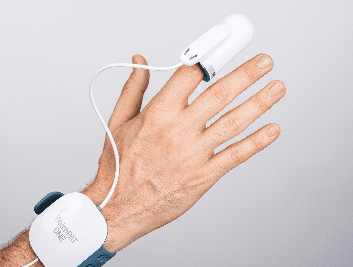
our partner at sleepdoctor.com
Save 10% + FREE 2-Day Shipping
Add to Cart“Truly grateful for this home sleep test. Fair pricing and improved my sleep!”
Dawn G. – Verified Tester
What to Consider When Choosing a CPAP Mask
Choosing the right CPAP mask is crucial. The wrong mask may feel uncomfortable, fail to function, or leak air. We’ll highlight some of the most important factors to consider when picking out a CPAP mask.
Price
CPAP masks cost less than the devices they connect to, though they can still be costly. Without insurance, you should expect to pay between $50 and $200 for a CPAP mask, depending on its features and style.
Size and Fit
The wrong size mask or a mask that doesn’t fit correctly can fail to deliver effective therapy. Check that a mask comes in the correct size for your needs and consider taking advantage of a trial period to ensure it works well with your face shape. Many masks are available in multiple sizes, so you'll want to explore your options to ensure a compatible fit.
Sleep Position
Side and stomach sleepers may find sleeping with a CPAP mask more difficult than back sleepers because masks are more likely to leak in those sleeper types. Top-of-the-head tubing can help prevent the tube from getting tangled when you move around in your sleep.
Compatibility
There are many CPAP machine brands and multiple product lines within them. Not all components are interchangeable. Make sure the mask you like is compatible with the device you own, or purchase the two together.
Comfort
You’re more likely to adhere to CPAP therapy if your mask fits correctly. Adjusting pressure settings with your doctor as needed and adding humidification if necessary also contribute to higher compliance. Other factors that can affect comfort are mask size, mask material, and location of the hose.
Though it takes time to get used to wearing a CPAP mask, there are enough options available that most sleepers can find a suitable match.
Quality Materials
You’ll need to replace your CPAP mask regularly. Choosing a mask made from high-quality materials can help extend the time between purchases.
Types of CPAP Masks You Can Choose From
There are three main types of CPAP masks. Nasal masks, nasal pillows, and full-face masks each help prevent airway collapse, though they accomplish this goal in slightly different ways.
Nasal pillows sit just below your nose with “pillows” that slightly penetrate your nostrils to seal snugly, while nasal masks cover your nose entirely. Traditional full-face masks cover both your mouth and nose, while newer “hybrid” full-face masks sit under your nose and go over your mouth.
Nasal Mask
Nasal masks fit snugly over your entire nose and seal against the skin around it. They are most often made from silicone.
Benefits:
- Fits securely around the nose to prevent leaks
- Less intrusive than full-face masks
- Available in multiple sizes to accommodate a range of face shapes
You shouldn’t use one if:
- You have a mustache
- You breathe primarily through your mouth
- You’re claustrophobic
Nasal Pillow Mask
Nasal pillows sit beneath your nose, sealing against your nostrils without covering your nose completely. Nasal pillows are typically crafted from flexible silicone.
Benefits:
- Great for people with facial hair
- Easy to see over top of the mask
- Small and lightweight
You shouldn’t use one if:
- You use higher-than-average pressure settings
- You most often breathe through your mouth
- You have chronic allergies or congestion
Full-Face Mask (Oronasal Mask)
Full-face masks cover both your mouth and nose. This mask style is generally pliable and made from silicone.
Benefits:
- Works effectively for people who breathe through their mouths
- People who use high pressure often find these masks more comfortable than other mask styles
- Works for those prone to congestion
You shouldn’t use one if:
- You have facial hair
- You sleep on your stomach
- You are an active sleeper
How to Buy a CPAP Mask
Buying a CPAP mask can seem confusing at first, especially with prescription requirements and varying insurance rules. Understanding how the process works—from getting a prescription to finding coverage and choosing where to shop—can make it much easier to get the right mask for your needs.
Do You Need a Prescription for a CPAP Mask?
Individuals need a prescription to get CPAP devices and components, including CPAP masks. Those who already have prescriptions may need regular renewals to purchase new devices and qualify for insurance coverage. You do not need a prescription to replace CPAP mask components like the cushion and headgear.
Does Insurance Cover CPAP Masks?
Medicare and many health insurance plans cover CPAP devices and equipment such as CPAP masks. However, not all plans are the same and some people may be responsible for all or part of the cost of accessories. Certain plans reimburse you after purchases, while others cover costs outright. Most providers only cover associated CPAP costs when you prove regular use and compliance. Contact your insurance provider for exact terms.
People with Medicare must adhere to a set of requirements that are in place to ensure you use your machine correctly. After meeting your Part B deductible, you must pay a 20% copay that covers CPAP accessories and a machine rental. Provided you use the machine as instructed, you’ll own it following 13 months of rental payments.
Where Can You Buy a CPAP Mask?
You can buy a CPAP mask online and from in-person medical device stores. Some physicians and sleep clinics also sell CPAP masks. Visiting a brick-and-mortar store allows you to see a mask in person, which may be appealing for people with specific needs. Online retailers often have the largest selection of CPAP masks, allowing you to find exactly what you need. There are also a number of apps now that can remotely scan your face and help you find the best-fitting mask option.
Have a question for our experts? Submit it to the Sleep Doctor Forum.Frequently Asked Questions
Though exact instructions vary depending on which mask style you choose, you put on most CPAP masks using the same method. First, sit upright and hold your mask in one hand and your headgear in the other. Place your mask over your nose, mouth, or both, according to the type of mask you use. Then, while holding the mask in place, pull the headgear over your head and fasten it to your mask.
A CPAP mask should fit snugly but not tightly. The goal is to create a secure seal that prevents air leaks without causing pressure marks, soreness, or discomfort. Overtightening your mask can lead to leaks.
A mask that fits properly sits against your face without tugging at your skin. There should not be any gaps between the mask and your mouth or nose. Turn your machine on, then feel and listen for leaks around the mask before going to sleep.
People with long hair can avoid getting it tangled in a CPAP mask by braiding it or wearing a beanie or hair wrap to bed. Before putting on your mask, use one of these methods to fasten your hair against your head, taking care to secure it well enough that it won’t come undone when you shift positions.
Choosing a CPAP mask that tightens without velcro or buckles at the hairline is another way to avoid getting your hair tangled in your mask and headgear.
The best way to clean a CPAP mask is with mild soap and water. Disconnect your mask from its tubing and make sure no parts of the machine are plugged in. Gently wash your mask in a tub or sink with soap and warm drinking-quality water. Avoid using harsh dish detergent, as it can leave residue behind.
Rinse your mask with warm water, checking to see that you removed all the soap. Finally, lay the mask out to dry on a towel away from direct sunlight. If you’re also cleaning your CPAP machine, it’s important to use only distilled water to prevent buildup and bacterial growth.
You should replace your CPAP mask about every three months. Though purchasing a high-quality mask and washing it regularly can slightly prolong a mask’s lifespan, you’ll still want to ensure you change masks regularly.
Overusing your mask can cause the cushion to crack, which may lead to leaks. Check with your mask manufacturer for exact care and replacement suggestions, but expect to purchase three to four new masks a year.
Still have questions?
Sleep apnea products can be confusing. If you need individualized assistance, post your question to the Sleep Doctor forum.
Medical Disclaimer: This content is for informational purposes and does not constitute medical advice. Please consult a health care provider prior to starting a new treatment or making changes to your treatment plan.


